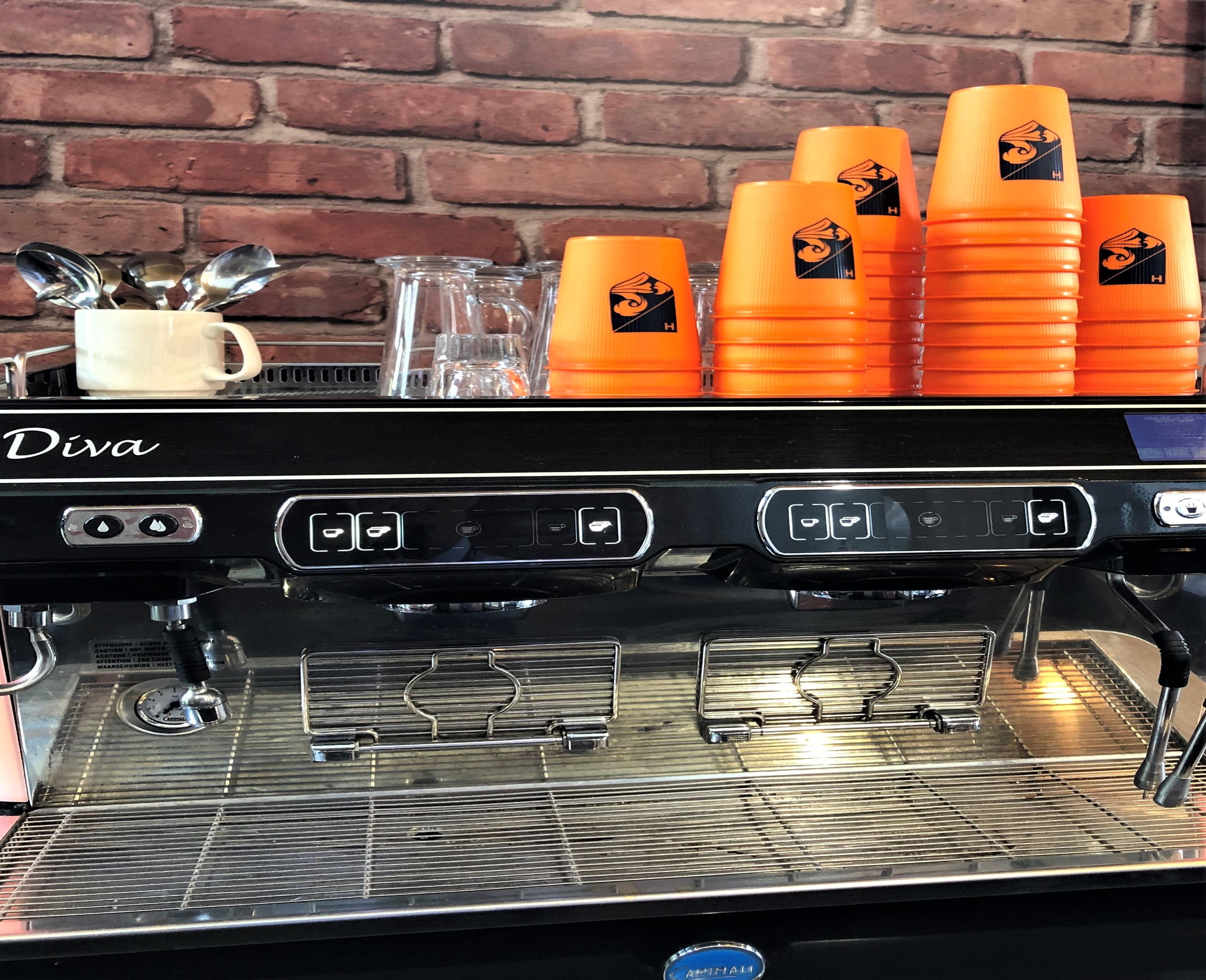Harper Adams University - Ditching Disposables
Thursday 24 September 2020
“We were going through 46,000 single-use cups a year, which was too much”. “It is entirely replicable across our sector and I hope many more universities soon follow suit.”

Harper Adams University is the UK’s first higher education facility to permanently ban single-use cups, setting a precedent for others to follow. Harper Adams University specialises in agricultural and rural programmes for students from around the globe. Set within a 550-hectare working farm, it’s not surprising that this university focuses on how to manage the demands a growing population has on the planet.
The higher education facility ranks sustainability issues high on its agenda and is a leading specialist university in tackling the future development of the planet’s food production, processing, animal sciences, engineering, land management and sustainable business. From molecular diagnostics laboratories to food processing facilities, students are well equipped to test their theories in the field – literally. The university’s foodservice operations reflect this ethos, offering students a range of eateries, from cosy cafés to student restaurants, which offer an extensive and imaginative range of dishes made with ingredients grown on site or sourced locally, all produced in the most environmentally friendly way possible.
The catering team at Harper Adams is continually looking for ways to minimise the university’s impact on the environment. One area that has been a recent focus of attention is the use of disposable cups. “Prior to the scheme we used recyclable cups, but the waste streams meant they were difficult to segregate correctly,” explains David Nuttall, Catering Manager. “We were going through 46,000 single-use cups a year, which was too much.” Following an encounter with a local businesswoman, Alison Thomas, at a Shropshire Chamber business networking event and learning more about her ‘Shrewsbury Cup’ concept, David was keen to get involved. The Shrewsbury Cup is a project where customers pay a £1 deposit for a reusable, insulated cup which they return for a refund at any participating outlet.
Towards the end of 2018 the AGRI Project, part funded by the European Regional Development Fund and delivered by Aston and Harper Adams Universities, met with Alison to see what support they could offer the project. This resulted in a trial across the university campus over a course of a number of weeks in 2019, supported by a ‘Choose to re-use’ campaign, with all takeaway drinks served in Shrewsbury Cups, an alternative to single-use cups.
Clear communication played a pivotal role in the success of the concept’s roll out and acceptance, with the university engaging in open dialogue with students. “Some students questioned why the university chose to use what seem to be plastic cups, so we created posters which state the facts,” explains David. “The cups are made from polypropylene, which is a thermoplastic that has been designed to last over 365 washes. They are also 36 times less likely to go to landfill compared to paper cups, where only one in every 400 is recycled, and they can be recycled when they reach the end of their working life. The cups create 95% less CO2 over a year than disposable paper cups, which are lined with plastic to retain heat, and the Shrewsbury Cup lids are now biodegradable to further reduce the environmental impact.”

 Rolling out a reusable cup scheme throughout the campus means that visitors also need to follow suit and purchase a reusable cup for £1. “Now we have to make sure that all visitors to the university are aware of the scheme, which includes clubs that use the site over the weekend or anyone attending events,” says David. “They are invited to bring their own cup and receive a 10% discount, and we encourage the use of their own reusable cups as much as possible. “We have had a few cups returned broken, so we need to talk to staff about being more vigilant about checking cups when they come back,” explains David. “Overall, the project has been a resounding success.”
Rolling out a reusable cup scheme throughout the campus means that visitors also need to follow suit and purchase a reusable cup for £1. “Now we have to make sure that all visitors to the university are aware of the scheme, which includes clubs that use the site over the weekend or anyone attending events,” says David. “They are invited to bring their own cup and receive a 10% discount, and we encourage the use of their own reusable cups as much as possible. “We have had a few cups returned broken, so we need to talk to staff about being more vigilant about checking cups when they come back,” explains David. “Overall, the project has been a resounding success.”
 The Catering team have also devised a drop system where people drop their returned cup in a basket or tray away from the serving area. Returned cups are then put in the dishwasher to follow hygiene cleaning procedures before being reused.
The Catering team have also devised a drop system where people drop their returned cup in a basket or tray away from the serving area. Returned cups are then put in the dishwasher to follow hygiene cleaning procedures before being reused.
This article was originally published in TUCO magazine in April 2020
NOVEMBER 2020 UPDATE: Please note - due to the current Covid restrictions the scheme is currently on hold.